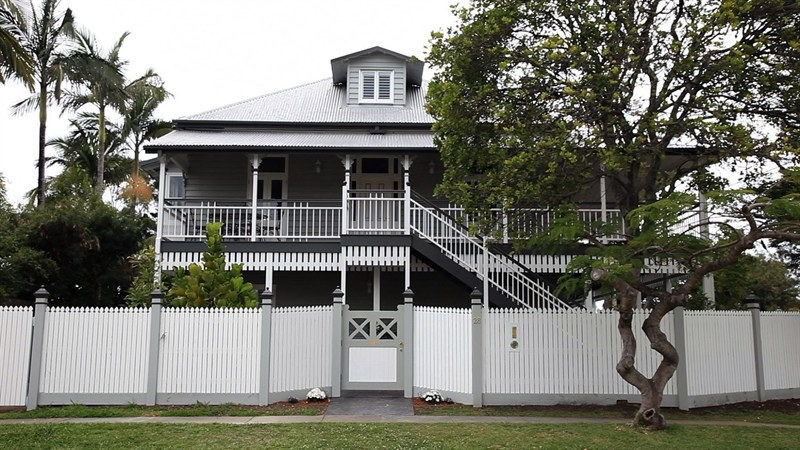
What Does a Commercial Electrician Do?
Commercial electricians are the unsung heroes keeping businesses running. From high-rise offices to bustling shopping centres, they ensure that lights stay on and machines run smoothly. Let’s delve into what these professionals do and why they’re essential.
The Work of a Commercial Electrician
Installation of Electrical Systems: Commercial electricians are responsible for installing new electrical systems, including wiring, outlets and light fixtures. This task requires a strong understanding of electrical theory and blueprints to ensure safe and effective installation.
Maintenance and Repairs: Commercial electricians perform routine checks and repairs to prevent electrical mishaps, ensuring systems operate safely and efficiently.
Inspecting and Testing: To ensure the proper functioning of electrical systems, commercial electricians conduct thorough inspections and testing. This includes diagnosing problems and implementing solutions to maintain the operational integrity of electrical components.
Upgrading Systems: Commercial electricians upgrade and integrate new technologies into existing systems, enhancing their efficiency and functionality.
Installation of Electrical Systems
Commercial electricians are essential for setting up new electrical systems in commercial buildings. This complex task requires a detailed understanding of electrical theory and blueprints. Here’s what it involves:
- Blueprint Analysis: Before starting, electricians must interpret the electrical plans of the building. This involves understanding the layout and specifications for wiring, fixtures and electrical components.
- Safety Preparations: Safety is paramount. Electricians set up the site to ensure safe working conditions, gathering all necessary tools and materials.
- Conduit and Box Installation: The installation of conduits (tubes for electric wires) and electrical boxes (for housing outlets and switches) is an early step.
- Wiring: Laying out and connecting wires according to the plan is a critical phase, requiring accuracy in measuring, cutting, and connecting.
- Installing Components: After wiring, the installation of switches, outlets and light fixtures follows. This requires precision to ensure secure fitting and correct connections.
- Power Supply Connection: The system is then connected to the power supply, involving critical safety checks to meet electrical codes.
- Testing: Thorough testing ensures the system functions correctly and meets safety standards.
- Final Inspection and Documentation: An external inspection might be needed, and proper documentation of the installation process is essential for future reference.
Maintenance and Repairs
Regular maintenance by commercial electricians is key to the longevity and safety of electrical systems. They perform routine checks and repairs to prevent problems, ensuring systems operate efficiently:
- Regular Check-ups: Inspecting electrical systems helps identify potential issues before they escalate.
- Troubleshooting and Repairs: Electricians diagnose and repair faults in the electrical system, ranging from simple fixes to complex rewiring.
- Component Replacement: Worn or outdated components are replaced to maintain system integrity and safety.
- Record Keeping: Keeping detailed records of maintenance activities helps track the system’s health and plan future interventions.
Inspecting and Testing
Inspection and testing by commercial electricians are crucial for the proper functioning of electrical systems:
- System Evaluation: Electricians comprehensively evaluate electrical systems to assess their condition.
- Diagnosing Issues: They use various tools and techniques to diagnose problems within the electrical system.
- Safety Compliance Checks: Electricians ensure that all aspects of the system comply with relevant safety standards and regulations.
- Implementing Solutions: After identifying issues, they implement solutions to maintain the operational integrity of electrical components.
Upgrading Systems
With advancing technology, commercial electricians also manage the integration of new technologies into existing electrical systems:
- Assessing Needs for Upgrades: Electricians evaluate the current system to determine the need for upgrades.
- Integrating New Technologies: They integrate newer technologies, like energy-efficient lighting or smart controls, into existing systems.
- Enhancing System Efficiency: These upgrades aim to improve the efficiency and functionality of the electrical system.
- Training and Handover: Post-upgrade electricians often provide training or instructions on the new system features to the building management or staff.
In these areas, commercial electricians play a crucial role in ensuring the safety, efficiency, and modernisation of electrical systems in commercial buildings.
Dan The Sparky Man – Your Trusted Local Commercial Electrician
The role of a commercial electrician is diverse and indispensable. From installing complex electrical systems to conducting meticulous maintenance and upgrades, these professionals ensure that commercial spaces function smoothly and adhere to the highest safety standards.
If you need a reliable and experienced commercial electrician, Dan the Sparky Man is here to help. Contact us to discuss your needs.
Related Posts:
What to Consider When Upgrading A Commercial Electrical System?
How to Hire the Right Commercial Electrician?
Commercial vs. Industrial Electricians: How Are They Different?
Dan Carpenter has built his business to be one of the most successful and trusted electrical businesses on the Gold Coast. He completed his apprenticeship in Adelaide at a young age. With a passion for self-driven success, he established his own enterprise on the Gold Coast at 22, quickly becoming a leader in the local building and solar industries. His dedication led him to win the Gold Coast Small Business Award and earn the title of Accredited Master Electrician.






